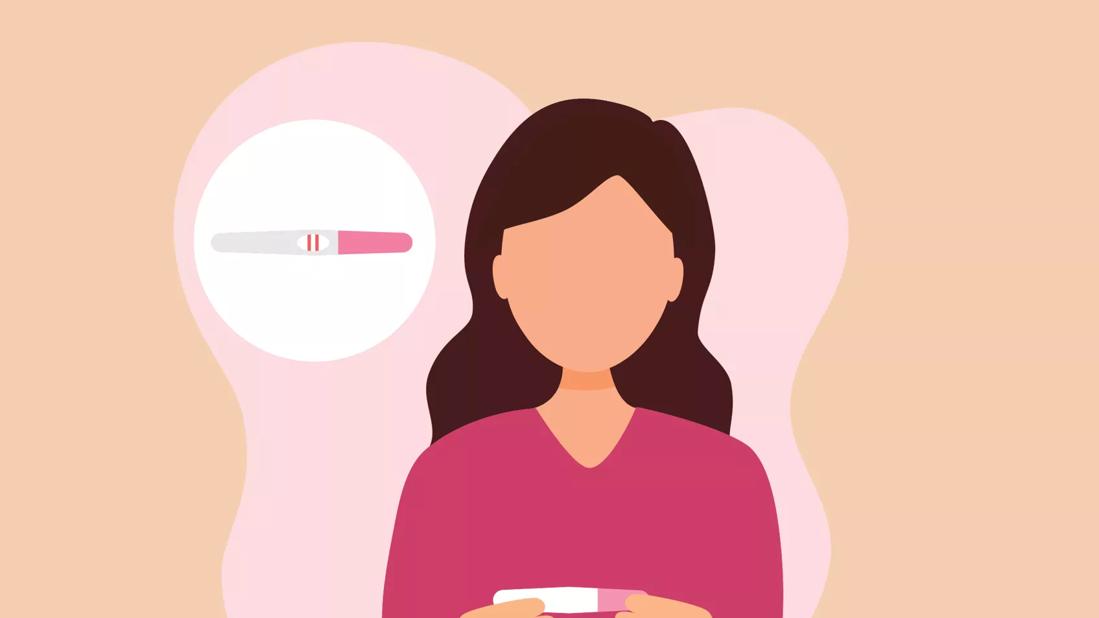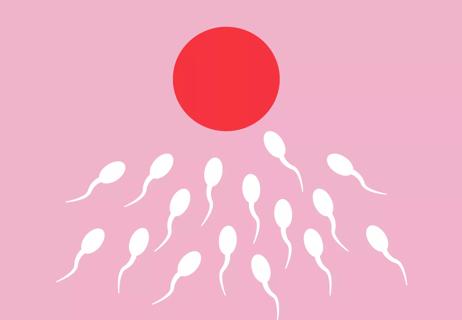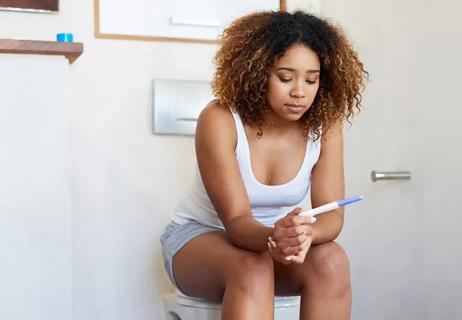Can pregnancy tests be wrong?

Maybe you can’t wait to have a baby. Or maybe that’s the last thing you’re hoping for.
Advertisement
Cleveland Clinic is a non-profit academic medical center. Advertising on our site helps support our mission. We do not endorse non-Cleveland Clinic products or services. Policy
Either way, if you think you might be pregnant, you need to know for sure. But what are the odds a positive pregnancy test might be wrong?
“Home urine pregnancy tests are pretty reliable,” says Ob/Gyn Jonathan Emery, MD. “But there are some reasons you might get a false-positive result.”
Dr. Emery explains when and why a pregnancy test might give a false positive — and what you can do to make sure the stick doesn’t lie.
When you get pregnant, your body produces a hormone called human chorionic gonadotropin, or hCG. Home pregnancy tests look for that hormone in your urine. If hCG is present, you should get a positive test result when you pee on a stick.
But hCG levels start out very low and increase over time. If you take the test too soon after conceiving, it might say you’re not pregnant when you really are.
In other words, timing can lead to a false negative. But what about a false positive?
False positives aren’t super common, Dr. Emery says. But they’re not impossible. Some potential causes include:
You took a pregnancy test and got two lines. (Positive!) But a few days later, your period arrived in force. What gives? The most common reason this happens is an early pregnancy loss, also known as a chemical pregnancy. In this case, the test was accurate — there was a pregnancy, but it wasn’t a viable one, Dr. Emery explains.
Advertisement
“It’s not technically false since a very early pregnancy did occur,” he says. “But this is the most common reason that a pregnancy test might appear to have been false.”
“A lot of fertility treatments involve taking hCG injections,” Dr. Emery says. If you’ve been taking fertility medications, that hCG might still be floating around your system.
That could trigger a positive pregnancy test, even if you’re not pregnant. To avoid that mix-up, wait at least two weeks after your last hCG injection to take a home pregnancy test, he says.
If you were recently pregnant, you might still have leftover hCG in your system. After childbirth, miscarriage or treatment for ectopic pregnancy, the hormone can remain in your body for up to four to six weeks, Dr. Emery says. “That could lead to a positive pregnancy test when your body just hasn’t cleared the hCG yet.”
Home pregnancy tests aren’t especially hard to use. But you still have to pay attention since a mistake can lead to incorrect results.
If you wait too long to read the results, for example, or use more drops of urine than the test calls for? You might want to take the answer with a grain of salt. “If you don’t follow all the instructions, any results — positive or negative — could be false,” Dr. Emery says.
Luckily, false positives are rare. And there are steps you can take to make sure your home pregnancy test gives you results you can trust.
Home pregnancy tests are inexpensive, private and quite reliable, Dr. Emery adds. “People often don’t believe what they’re seeing. But if you’ve used the test correctly and done it at the right time, it’s probably true.”
Advertisement
Learn more about our editorial process.
Advertisement

Home pregnancy tests can detect pregnancy just two weeks after ovulation

Understanding your menstrual cycle is key

Bleeding is a risk and warrants taking care, but the reward of this lifesaving medication is great

Severe and debilitating headaches can affect the quality of your child’s life

With repeat injections over time, you may be able to slow the development of new wrinkles

Type 2 diabetes isn’t inevitable with these dietary changes

Applying a hot or cold compress can help with pain